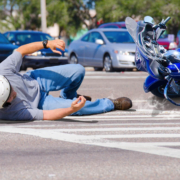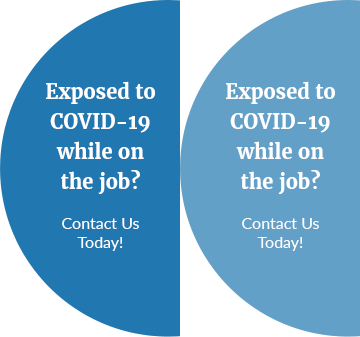How Social Media Use Can Impact Your Personal Injury Claim
In today’s world, social media has become a large part of our everyday life. Before even thinking twice, it is commonplace to let family, friends, and even strangers know what is going on in your corner of the world through status updates, photos, videos, and tweets.
But if you have been injured in an accident and are pursuing a personal injury claim, social media can pose some hidden dangers. It might be tempting to share the details of a car accident, slip and fall, or other traumatic event on social media, but doing so could have negative consequences for your case. There are also other ways that using social platforms can impact your ability to recover compensation for your injuries.
How Social Media Can Mess Up Your Claim
Let us say you were involved in an accident with a large truck and sustained a back and neck injury. You decide to pursue a personal injury claim against both the truck driver and the trucking company since your injuries require medical treatment, and you are unable to work.
You are determined to get better and decide to see how much this injury has limited your movement by heading over to the gym. You post about your efforts on social media and even give everyone another update later when you go out to dinner with your family.
Even if your injuries and pain are legitimate, and you are unable to work, your social media updates tend to contradict this and could undermine your claim. An insurance company will use any evidence it can get its hands on to downplay your injuries and even allege outright fraud.
Many personal injury cases are challenging enough without the injury victim giving the defendant justification to deny a claim or offer much less than your case is worth. In short, social media can significantly impact the outcome of your case.
Why You Should Not Share on Social Media
When you file an injury claim, the primary objective of the insurance company and defense attorney is to diminish your claim as much as possible so they can limit the defendant’s liability. These parties, therefore, will look for any and all evidence that either proves the accident did not happen as you claim or that your injuries are not severe enough to justify a fair settlement.
Even though you believe your social media posts are meant to update friends and family, they might be used as evidence against you. A large part of many personal injury cases is non-economic damages for things like pain and suffering and mental anguish. It will be difficult to justify these damages if you are posting updates on social media of yourself socializing with friends and family, even if you were in physical and emotional pain at the time.
Even when you believe you are being cautious, you might still post something that can be used against you. Check-ins, photos that you take, and comments from friends and family all have the potential to contradict your claim and undermine the efforts of your legal team.
Who Can See Your Social Media Activity?
Every social media platform allows you to control who sees your activity through its privacy settings. Often, these settings are difficult to access, and many people are unaware that they have the option to make such adjustments.
Even if you do not have an active personal injury case, it is simply a good practice to lock down your privacy settings to protect your personal information. Why do you want people you do not know looking at your photos and status updates?
When you adjust your settings, be sure to turn off access to your content to anyone that is not a connection. Likewise, you can disallow “friends” from sharing your content. But even this will not prevent someone from taking a screenshot of your content and reposting it or forwarding it to someone else if they felt compelled to do so.
It is vital to remember that even adjusting your privacy settings on social media will not necessarily protect what you post from people who are interested. The best plan of action is to simply not post anything that can be used to undermine your case.
Tips on Social Media Use When Pursuing a Personal Injury Claim
To protect your rights and get the best outcome possible for your personal injury case, we recommend that clients follow these social media guidelines:
- Avoid posting about your case – at all – and ask friends and family not to post about your accident or injury as well.
- Limit all activity on social media until your personal injury case has been resolved.
- If you must post on social media, review the content thoroughly before doing so, and consider the potential consequences.
- Before using social media, check your privacy settings to make sure that no one outside of your direct connections can see your activity.
- Avoid accepting new friend requests or adding new connections while your case is ongoing. It is certainly possible that someone from the insurance company, defense counsel’s firm, or a person connected with the defendant will try to gain access to your information.
- Avoid posting any frustrations about your case on social media.
Your personal injury attorney’s job is to build the strongest case possible so that you can get the compensation you deserve after a serious accident. Unfortunately, posting on social media is rarely going to help your case.
Call an Experienced Pittsburgh Personal Injury Law Firm
The best way to prevent insurance companies from using information against you is to keep the details of your personal life private. Avoid speaking with anyone about your accident. Do not share information or allow family or friends to discuss your life on social media. Insurance companies are known for trying to convince accident victims that they are not injured or that someone else is responsible.
The seasoned personal injury attorneys at Caroselli, Beachler & Coleman understand the tactics that insurers use to avoid paying what they owe, including attempting to collect information on social media. We will put our extensive experience and knowledge to work on your behalf to fight for the compensation you deserve. Contact our office today at 412-391-9860, toll-free at 866-466-5789, or message us online to schedule a free case evaluation.













